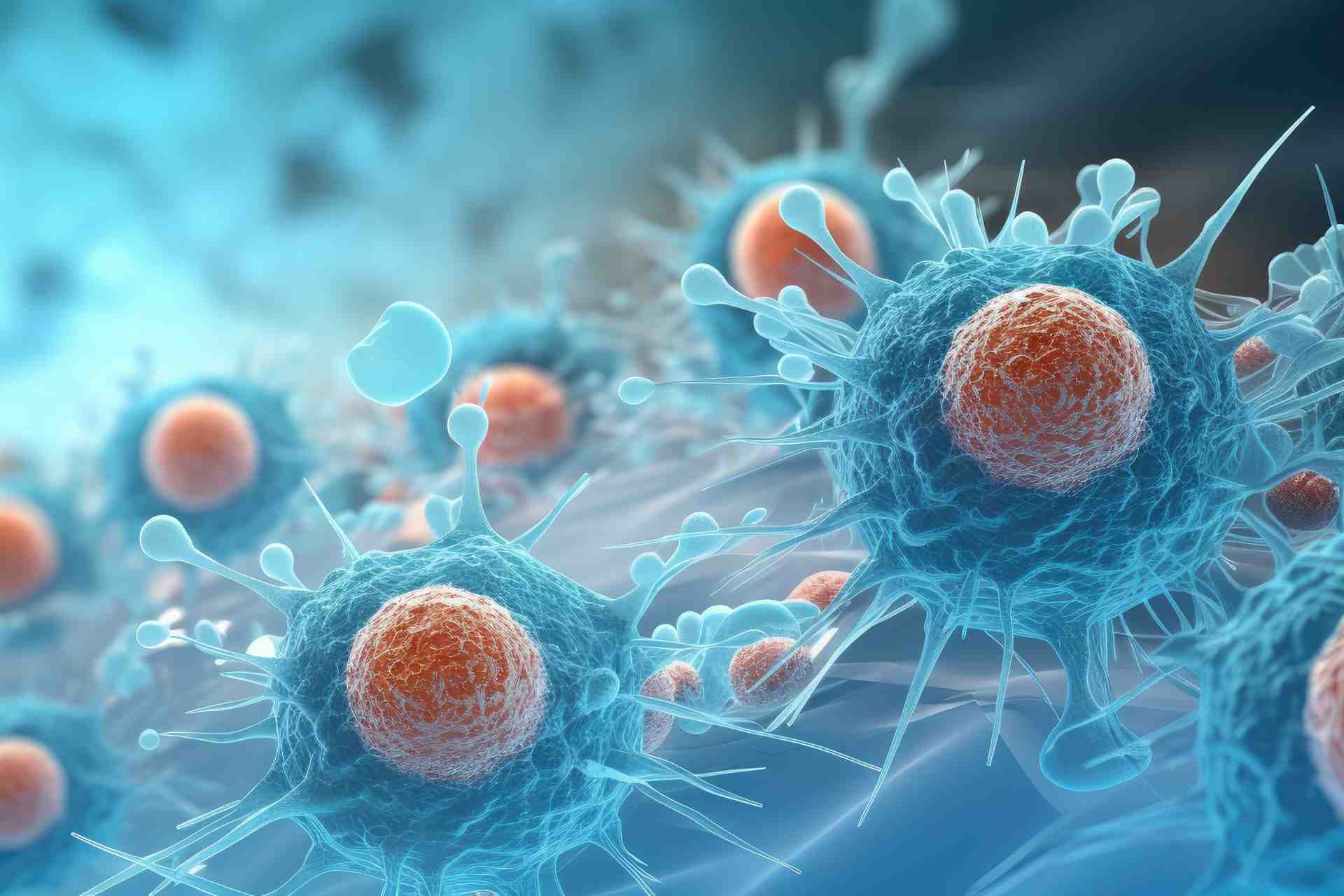What is already known
The gut microbiota has been associated with a person’s response to immunotherapy, a type of cancer treatment that activates the immune system to help the body find and destroy cancer cells. These effects are in part dependent on bacterial metabolites such as short chain fatty acids, which are known to influence different inflammatory signaling pathways. However, how gut microbes and their metabolites influence immune responses to cancer treatment remains unclear.
What this research adds
Researchers found that treating cancer cells with bacterial metabolites increases the expression of molecules called HLA class I on the surface of the cells. This activates immune cells, called cytotoxic T lymphocytes, that can destroy cancer cells. Bacterial metabolites combined with different immunotherapy treatments upregulated the expression of HLA class I molecules, increased the response of cytotoxic T lymphocytes, and reduced tumor growth of both melanoma and breast cancer cells.
Conclusions
The findings show that bacterial metabolites can sensitize cancer cells to treatment with immunotherapy by boosting the expression of HLA class I molecules.
The gut microbiota has been associated with a person’s response to immunotherapy, a type of cancer treatment that activates the immune system to help the body find and destroy cancer cells. But the molecular mechanisms underlying these effects remain unclear. Now, researchers have found that microbial metabolites can drive cancer cells to increase the expression of molecules that activate specific immune cells, which ultimately destroy cancer cells.
The findings, published in Cancer Cell, provide a potential mechanism by which the microbiota could influence immunotherapy responses.
“The cross-talk between the gut microbiota and the immune system is partially dependent on the metabolites released by bacteria during the fermentation process,” the researchers say. For example, bacteria produce short chain fatty acids (SCFAs), which are known to cross the gut vascular barrier and influence different inflammatory signaling pathways. SCFAs have also shown potential in sensitizing tumor cells to immunotherapy, and they are currently being testing in clinical trials on people with different types of cancer.
These and other findings, the researchers say, “suggest that gut microbiota and their byproducts can influence immune responses to cancer.” However, they add, the molecular mechanisms underlying this response have yet to be elucidated.
The team, led by Valentina Ferrari and Maria Rescigno at Humanitas University in Milan, set out to investigate if bacterial metabolites could influence the expression of molecules called HLA class I on cancer cells.
Evading immune surveillance
HLA class I molecules are expressed on most cell types, including cancer cells, and they present antigens to immune cells called cytotoxic T lymphocytes, which can destroy cancer cells and other invaders. Previous research has found that various types of cancers show a reduced expression of HLA class I molecules. This diminished expression represents one of the main mechanisms used by cancer cells to evade immune surveillance — the processes by which immune cells recognize foreign pathogens or cancer cells.
The researchers generated microbial metabolites from Bifidobacterium longum and Akkermansia muciniphila, two bacterial strains that have been associated with increased responses to immunotherapy in cancer patients, as well as a strain of Lactobacillus paracasei, which the team had been previously identified. Then, the researchers tested these microbial metabolites on breast cancer cells grown in a lab dish.
Metabolites released by L. paracasei boosted the expression of HLA class I molecules on the surface of cancer cells, the researchers found. Metabolites from another Lactobacillus strain, L. vaginalis, also increased the expression of these molecules.
Stimulating immunity
The increased the expression of HLA class I molecules on the surface of cancer cells resulted in the activation of cytotoxic T lymphocytes, which ultimately destroyed cancer cells.
Bacterial metabolites combined with different immunotherapy treatments also boosted the expression of HLA class I molecules and reduced tumor growth of both melanoma and breast cancer cells.
Further experiments showed that the upregulation of HLA class I expression on cancer cells is dependent on the activation of innate inflammatory pathways. Metabolites released by B. longum or A. muciniphila did not upregulate the expression of HLA class I molecules, the researchers found.
“Our results suggest that discovering treatments that increase HLA class I expression could improve anti-cancer immune responses by enabling [cytotoxic T lymphocytes] to recognize and eliminate malignant cells,” the authors say.









